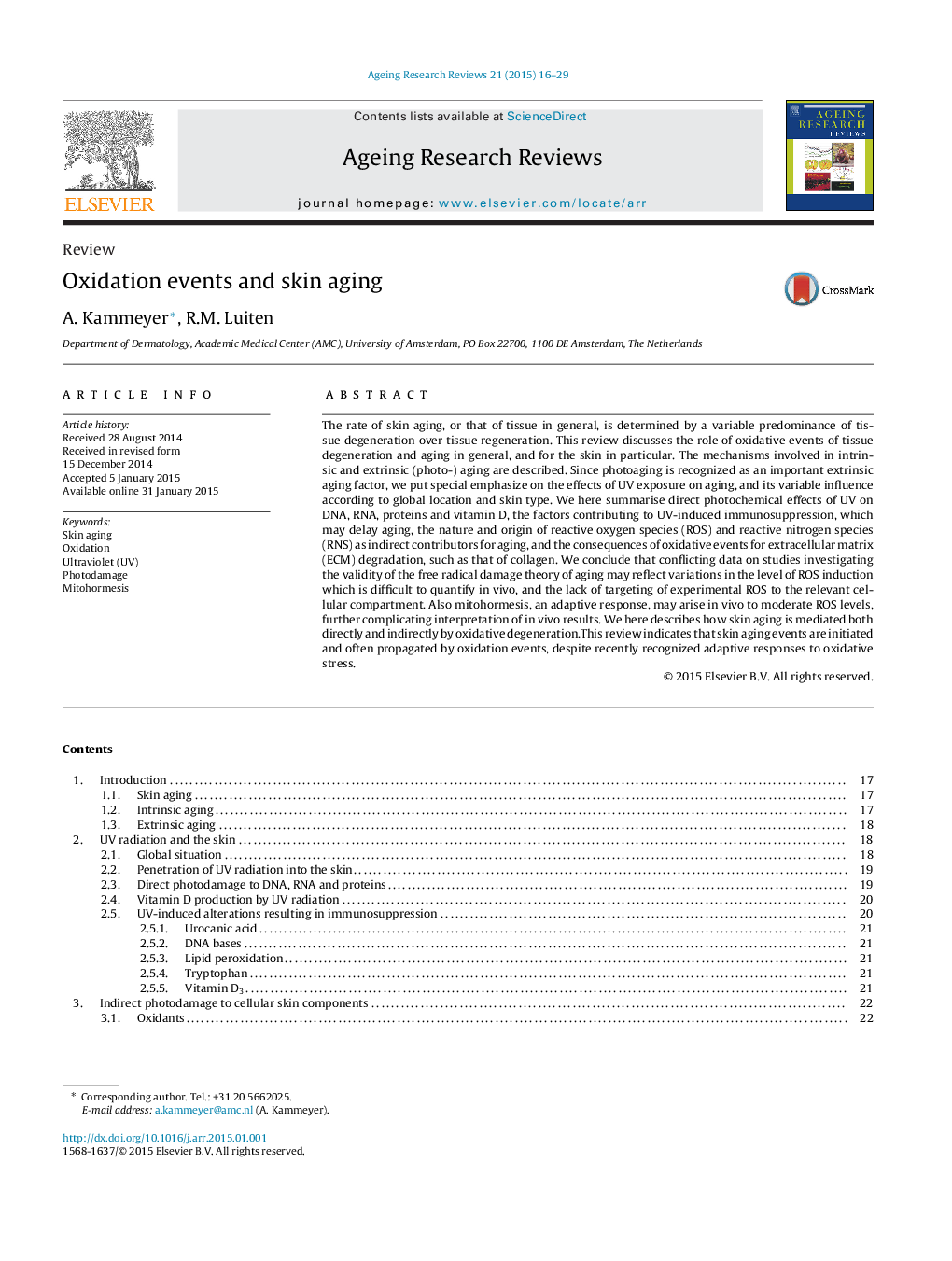| Article ID | Journal | Published Year | Pages | File Type |
|---|---|---|---|---|
| 1902196 | Ageing Research Reviews | 2015 | 14 Pages |
•Skin aging is more influenced by extrinsic than intrinsic processes.•Due to extrinsic factors, skin aging differs from aging of other tissue.•Oxidative degeneration in the skin overrules anti-aging adaptive responses.•Oxidative degeneration is the prime cause of skin aging, rather than senescence.•The rate of skin aging depends on individual genetic makeup and lifestyle.
The rate of skin aging, or that of tissue in general, is determined by a variable predominance of tissue degeneration over tissue regeneration. This review discusses the role of oxidative events of tissue degeneration and aging in general, and for the skin in particular. The mechanisms involved in intrinsic and extrinsic (photo-) aging are described. Since photoaging is recognized as an important extrinsic aging factor, we put special emphasize on the effects of UV exposure on aging, and its variable influence according to global location and skin type. We here summarise direct photochemical effects of UV on DNA, RNA, proteins and vitamin D, the factors contributing to UV-induced immunosuppression, which may delay aging, the nature and origin of reactive oxygen species (ROS) and reactive nitrogen species (RNS) as indirect contributors for aging, and the consequences of oxidative events for extracellular matrix (ECM) degradation, such as that of collagen. We conclude that conflicting data on studies investigating the validity of the free radical damage theory of aging may reflect variations in the level of ROS induction which is difficult to quantify in vivo, and the lack of targeting of experimental ROS to the relevant cellular compartment. Also mitohormesis, an adaptive response, may arise in vivo to moderate ROS levels, further complicating interpretation of in vivo results. We here describes how skin aging is mediated both directly and indirectly by oxidative degeneration.This review indicates that skin aging events are initiated and often propagated by oxidation events, despite recently recognized adaptive responses to oxidative stress.
